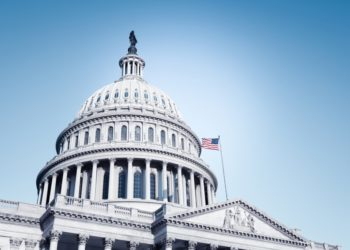German Foreign Minister arrived in the Ukrainian capital, , on Monday morning with promises of continued support for against the .
“We will continue to stand firmly by Ukraine’s side so that it can continue to defend itself successfully — with modern air defense and other weapons, with humanitarian and economic aid,” he said after arriving in Kyiv by train on an unannounced visit.
“[Russian President Vladimir] Putin is not ceding on any of his maximalist demands,” he continued. “He doesn’t want negotiations; he wants a capitulation.”
In a statement released by the German Foreign Ministry, Wadephul was also quoted as saying: “Ukraine’s freedom and liberty is the most important task in our foreign and security policy.”
Ukraine: Russian bombardments continue
Wadephul, of German Chancellor ‘s conservative , previously visited the western Ukrainian city of Lviv shortly after taking office in May, but his first visit to the capital Kyiv on Monday came after weeks of intensifying Russian bombardments.
On Saturday night, the Ukrainian Air Force battled to fight off what it described as the “most massive airstrike” on the country since the start of ‘s full-scale invasion in February 2022, consisting of 477 and 60 missiles, 475 of which were eliminated.
Over the course of last week, Ukrainian President said Russia had launched over 114 missiles, over 1,270 drones and almost 1,100 glide bombs at targets across Ukraine.
“Ukraine will determine whether remains a place where freedom and human dignity prevail — or becomes a continent where violence redraws borders,” said Wadephul.
“That is why we remain fully committed to supporting Ukraine [and demonstrating] our resolve as Europeans.”
Independent Ukrainian missiles, not Taurus
Wadephul is scheduled to hold talks with Ukrainian Foreign Minister Andrii Sybiha and pay tribute to the victims of the Babyn Yar massacre, where occupation forces murdered more than 33,000 Jewish men, women and children in a ravine on the outskirts of Kyiv in 1941.
High-level discussions between German business leaders and Ukrainian officials are also planned, according to the German Foreign Office.
is the second-biggest provider of military aid to Ukraine after the United States, but Berlin continues to withhold its powerful, long-range Taurus missiles due to fears of escalating the conflict.
Instead, Chancellor Merz pledged in May to help Ukraine develop its own long-range missile capabilities that would be free of any Western-imposed limitations — and provide a degree of independence from US support, which has appeared increasingly uncertain under the Trump administration.
Washington has not announced any additional backing for Kyiv since January, although President didn’t rule out providing additional Patriot air defense missiles after a meeting with President Zelenskyy at the summit in The Hague last week.
Russia claims battlefield gains, predicts NATO collapse
Meanwhile, on the battlefield, Russian troops continue to make incremental gains, with state media and military bloggers claiming that Russian troops have captured the small village of Dachnoye, just inside Ukraine’s eastern Dnipropetrovsk region.
Unlike the eastern regions of , , Zaporizhzhia and Kherson, as well as the Crimean peninsula, Russia has not claimed to have annexed Dnipropetrovsk.
Also on Monday, Russian Foreign Minister Sergei Lavrov said that a commitment by to increase defense spending to 5% of GDP could ultimately lead to the collapse of the alliance.
Asked about remarks by Polish Foreign Minister Radoslaw Sikorski, who reportedly claimed that an arms race between Russia and the West could trigger the fall of President , Lavrov responded: “Given that he is such a predictor, he probably foresees that a catastrophic increase in the budget of countries will, according to my estimates, also lead to the collapse of this organization.”
On Friday, Putin suggested Moscow was planning on cutting its military expenditure from next year. Russia is currently spending around 6.3% of its GDP on its armed forces, the highest level since the Cold War, with defense spending accounting for around 32% of the 2025 federal budget.
Edited by: Srinivas Mazumdaru
The post Ukraine ‘most important task’ in German foreign policy appeared first on Deutsche Welle.




